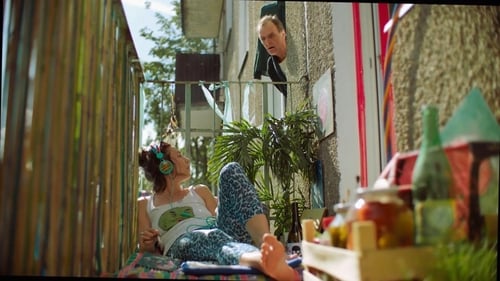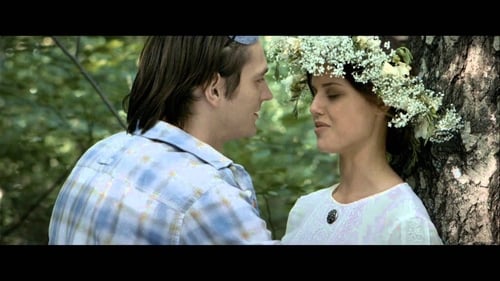
Writer
An observational reflection on the body and existing in one’s social as well as physical “skin”. “To break out of their traumas and the ingrained ideas of normality and the fictional ideal of femininity, and to make their bodies truly their own – this is the goal of two young women who use their bodies as a tool of protest and a work of art,” writes the filmmaker.

Director
An observational reflection on the body and existing in one’s social as well as physical “skin”. “To break out of their traumas and the ingrained ideas of normality and the fictional ideal of femininity, and to make their bodies truly their own – this is the goal of two young women who use their bodies as a tool of protest and a work of art,” writes the filmmaker.

Art Direction
Twelve uncomfortable, deeply personal and painful stories by women who have had an abortion are read, told and 'experienced' by six male actors. Does that make a difference? Will the society listen now?

Writer
Twelve uncomfortable, deeply personal and painful stories by women who have had an abortion are read, told and 'experienced' by six male actors. Does that make a difference? Will the society listen now?

Director
Twelve uncomfortable, deeply personal and painful stories by women who have had an abortion are read, told and 'experienced' by six male actors. Does that make a difference? Will the society listen now?

Writer
By chance, Louise and Kaspars meet on a trip to celebrate Midsummer’s Eve. She’s running away from annoying neighbours and general sense of pointlessness; he’s running away from a failing marriage. They’re both young, talented, and lost; they both want to become artists; they’re both unsure how to go on about their lives. Maybe that’s why their shared trip turns into a strange, sometimes funny and sometimes complicated journey through a relationship over the course of three years.

Director
By chance, Louise and Kaspars meet on a trip to celebrate Midsummer’s Eve. She’s running away from annoying neighbours and general sense of pointlessness; he’s running away from a failing marriage. They’re both young, talented, and lost; they both want to become artists; they’re both unsure how to go on about their lives. Maybe that’s why their shared trip turns into a strange, sometimes funny and sometimes complicated journey through a relationship over the course of three years.

Writer

Writer
The film tells about an active senior, Mārtiņš Ziebergs (65), who is spending his old days and retirement looking for lost people; there are hundreds of them in Latvia. Following his activities, the film discloses both the everyday routine of the senior – life of “a detective” and process of investigation – as well as the outcome of it – unexpected reunions of the ones who have been searching for each other for years and also unmade reunions or cases never solved.

Cinematography
Romeo n’ Juliet depicts the contemporary love story of a young Latvian girl, Juliet, and a Russian guy, Romeo. Juliet aimlessly spends tiresome days in Jūrmala; all she has to look forward to is leaving for England with her best friend in search of a better life. Romeo also wants to live for something and dreams of a hip-hop musician’s life in Russia. After Romeo sees Juliet for the first time and falls in love, their dreams and hopes for a better future collapse in a matter of days.

Writer
Budding lawyer Vik is disappointed in himself. He tries to change and please everyone until he looses sight of himself. Vik meets the mysterious Mirror Man who offers to help him regain his self-esteem and become the kind of person Vik dreams of becoming. Vik agrees, but the Mirror Man at times leaves Vik in situations where he surprises others not just by his new-found self-confidence, but also by insolence that causes a rift with his closest friends. Soon the Mirror Men in Vik’s life are too many to control, and when he tries to back away – it’s too late. Vik has alienated himself from his own essence and become one of them – a nameless, faceless human devoid of personality.

Writer
After his wife kicks him out of the house, an elderly, anti-social and quite conservative man Arvīds decides to reconnect with his grandson by staying with the boy and his mother. Not keen on their lifestyle, the old man tries hard to accept all the eccentricities of the young and liberal. Fortunately for him, a warm-hearted friend of Arvīds’ ex-daughter-in-law is always around to help and he seems to be a natural when it comes to children and other stubborn people. When Arvīds finds out that the young man is gay, he decides he has had enough. Often, life is not that much about finding your place, as about learning how to share that place with others. This short film is a light and playful experience, looking into the definition of “normal” that varies so strongly from generation to generation.

Director
After his wife kicks him out of the house, an elderly, anti-social and quite conservative man Arvīds decides to reconnect with his grandson by staying with the boy and his mother. Not keen on their lifestyle, the old man tries hard to accept all the eccentricities of the young and liberal. Fortunately for him, a warm-hearted friend of Arvīds’ ex-daughter-in-law is always around to help and he seems to be a natural when it comes to children and other stubborn people. When Arvīds finds out that the young man is gay, he decides he has had enough. Often, life is not that much about finding your place, as about learning how to share that place with others. This short film is a light and playful experience, looking into the definition of “normal” that varies so strongly from generation to generation.

Writer
After receiving an edict from the municipal authorities about the closing of their school, the students at Mežvidi primary school continue to attend lessons and exercise creativity and fun, but it’s all clouded in a sense of fatality. They aren’t many students, and because of that the school resembles a large family rather than an institution. Near the Russian border, deep in the Latgale region, this place will become a nowhere-land once the youth depart. In an intimate message about a national problem, the story focuses on three sisters for whom life is about to drastically change. Through their daily lives and small adventures we try to understand the real meaning of the contention that “the countryside is dying”. And we see hope.

Director
After receiving an edict from the municipal authorities about the closing of their school, the students at Mežvidi primary school continue to attend lessons and exercise creativity and fun, but it’s all clouded in a sense of fatality. They aren’t many students, and because of that the school resembles a large family rather than an institution. Near the Russian border, deep in the Latgale region, this place will become a nowhere-land once the youth depart. In an intimate message about a national problem, the story focuses on three sisters for whom life is about to drastically change. Through their daily lives and small adventures we try to understand the real meaning of the contention that “the countryside is dying”. And we see hope.

Writer
Dagne, her husband and teenage daughter live in a peaceful Latvian countryside. While everyone is busy with their own thing, the family ties are loosening. Dagne is diagnosed with slowly progressing deafness. Acceptance of the new situation and the need to adapt to new ways of communication, including learning sign language, is not easy for neither of them. Dagne feels left alone and not supported during this hard time of her life her. Her daughter is very busy with her music band and preparation for an upcoming contest. Her husband is occupied with work at the farm. Even simple daily things become complicated, impossible and emotionally hard.














